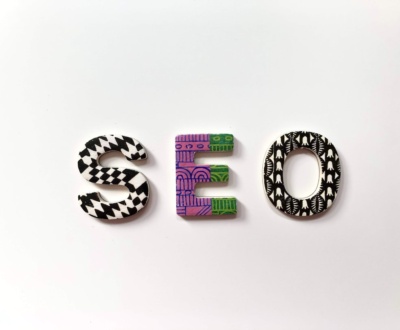Online Marketing Mastery: Empower Your Strategy with Unconventional Techniques” (in German: “Online-Marketing-Meisterschaft: Beflügeln Sie Ihre Strategie mit unkonventionellen Techniken”)
- June 8, 2023
- Web Marketing
Importance of Online Marketing
Online marketing has become a crucial aspect of businesses today, and it’s essential to understand its importance and how it works. With the increasing number of internet users, businesses can access an extensive customer base that they couldn’t reach with traditional marketing methods. In fact, online marketing has become so important that businesses that don’t incorporate it into their strategies risk falling behind their competitors.
Online marketing has many benefits, including:
- Wider reach: With online marketing, businesses can reach customers all over the world, regardless of their physical location.
- Cost-effectiveness: Online marketing is often cheaper than traditional marketing methods, such as print or television advertising.
- Speed: Online marketing campaigns can be created and launched quickly, allowing businesses to respond to changes in the market or customer needs.
- Trackability: Online marketing allows businesses to track the success of their campaigns and adjust them as needed.
- Targeting: Online marketing allows businesses to target specific demographics, interests, and behaviors, increasing the likelihood of conversion.
- Personalization: With online marketing, businesses can personalize their campaigns to individual customers, creating a more engaging experience.
- Attractiveness: Online marketing campaigns can use multimedia elements such as videos, animations, and images to make them more visually appealing and engaging.
In the next sections, we’ll explore the different types of online marketing and how they can be used to achieve business goals.
Different Types of Online Marketing
There are many different types of online marketing, each with its own unique set of techniques and benefits. In this section, we’ll explore some of the most common types of online marketing.
Search Engine Optimization (SEO)
Search engine optimization, or SEO, is the process of optimizing a website to rank higher in search engine results pages (SERPs). This is achieved by optimizing the website’s content, structure, and code to make it more easily accessible and understandable to search engines.
According to Finance Strategists, digital assets are becoming increasingly important in retirement planning as more people accumulate valuable online assets such as cryptocurrency, social media accounts, and digital media.
Some techniques used in SEO include:
- Keyword research: Identifying the most relevant keywords to target and optimizing content around those keywords.
- On-page optimization: Making changes to the website’s content, structure, and code to make it more easily understood by search engines.
- Technical SEO: Optimizing the website’s structure and code to make it more easily crawled and indexed by search engines.
- Content marketing: Creating high-quality content that resonates with users and encourages engagement.
- Link building: Building high-quality backlinks to the website to increase its authority and improve its search engine rankings.
- Local SEO: Optimizing the website for local searches, such as “near me” or “in [city]”.
- Mobile optimization: Ensuring the website is optimized for mobile devices.
Search Engine Marketing (SEM)
Search engine marketing, or SEM, is a type of digital marketing that involves paid advertising to increase visibility in search engine results pages. SEM can include paid search advertising, such as Google Ads, as well as paid social media advertising.
The main difference between SEM and SEO is that SEM involves paid advertising, while SEO focuses on organic search results. SearchFacts explains the differences between the two strategies.
Content Marketing
Content marketing is the process of creating and sharing valuable, relevant, and engaging content to attract and retain a clearly defined audience and ultimately drive profitable customer action. Content marketing can include blog posts, articles, videos, infographics, and more.
According to Adobe Business, some of the common types of online marketing include content marketing, social media marketing, SEO, email marketing, and paid advertising. To get started, evaluate current strategy, identify business goals, and use marketing automation tools like Adobe Marketo Engage.
Some benefits of content marketing include:
- Establishing the business as a thought leader in the industry
- Building trust with customers by providing valuable information
- Improving search engine rankings through high-quality content
- Encouraging engagement and social sharing
Social Media Marketing
Social media marketing involves using social media platforms to promote a business’s products or services. This can include creating and sharing content on social media, as well as paid social media advertising.
Some examples of social media platforms for marketing include:
- YouTube
- Snapchat
Optimizely suggests that social media marketing is one of the most common types of online marketing. Social media campaigns can include influencer partnerships, video ads, and email list collection.
Email Marketing
Email marketing involves sending promotional emails to a list of subscribers to promote a business’s products or services. Email marketing can be used to nurture leads, promote sales, and build long-term relationships with customers.
Some benefits of email marketing include:
- High ROI (return on investment) compared to other forms of marketing
- Personalization and targeting
- Measurable results through analytics and tracking
Paid Advertising
Paid advertising involves paying for ad space on websites, search engines, or social media platforms. This can include display ads, search ads, video ads, and more.
Some examples of paid advertising channels include:
- Google Ads
- Facebook Ads
- Instagram Ads
- Twitter Ads
- LinkedIn Ads
- YouTube Ads
In the next section, we’ll explore the importance of digital assets in online marketing.
Importance of Digital Assets in Online Marketing
Digital assets, such as cryptocurrency, social media accounts, and digital media, are becoming increasingly important in online marketing. In this section, we’ll explore why digital assets are important and how they can be used in online marketing strategies.
What are Digital Assets?
According to Finance Strategists, digital assets are anything that exists in a binary format and comes with the right to use. This can include cryptocurrency, social media accounts, digital media such as music or video files, and more.
Why are Digital Assets Important in Online Marketing?
Digital assets have become increasingly important in online marketing as more people use the internet to conduct business and interact with brands. Here are some reasons why digital assets are important:
-
Increased reach: Digital assets can be easily shared and accessed online, allowing businesses to reach a wider audience than traditional marketing methods.
-
Cost-effectiveness: Digital assets can often be created at a lower cost than traditional marketing materials, such as print advertisements or television commercials.
-
Measurability: Digital assets can be tracked and analyzed, providing businesses with valuable insights into their marketing strategies and allowing them to make data-driven decisions.
-
Personalization: Digital assets can be personalized to individual customers, providing a more engaging and relevant experience.
How to Use Digital Assets in Online Marketing Strategies
Digital assets can be used in a variety of online marketing strategies, including:
-
Content marketing: Creating valuable, high-quality content that can be shared and accessed online. This can include blog posts, videos, infographics, and more.
-
Social media marketing: Using social media platforms to promote digital assets, such as sharing links to blog posts or creating social media graphics to promote a product or service.
-
Search engine optimization: Using digital assets, such as high-quality images or videos, to improve search engine rankings and increase visibility online.
-
Email marketing: Using digital assets, such as whitepapers or ebooks, to encourage email sign-ups and promote products or services through email campaigns.
Examples of Digital Assets in Online Marketing Strategies
Here are some examples of digital assets that can be used in online marketing strategies:
-
Videos: High-quality videos can be used to promote products or services, provide tutorials or how-to guides, or share customer testimonials.
-
Infographics: Infographics can be used to share complex information in an easily digestible format, increasing engagement and shareability.
-
Whitepapers and eBooks: Whitepapers and eBooks can be used to provide in-depth information about a product or service, establishing the business as a thought leader in the industry.
-
Social media graphics: Graphics can be used to promote products or services on social media platforms, increasing engagement and driving traffic to the business’s website.
In the next section, we’ll explore the best practices for implementing an online marketing strategy.
Best Practices for Implementing an Online Marketing Strategy
Implementing an effective online marketing strategy takes time, effort, and careful planning. In this section, we’ll explore some best practices for implementing an online marketing strategy that drives results.
Identify Business Goals
Before getting started with an online marketing strategy, it’s important to identify business goals. This could include increasing website traffic, improving search engine rankings, or generating more leads or sales. By identifying business goals, businesses can create a more focused and effective online marketing strategy.
Evaluate Current Strategy
Once business goals have been identified, it’s important to evaluate the current online marketing strategy to determine what’s working and what’s not. This could include analyzing website traffic, social media engagement, or email campaign metrics.
Determine Target Audience
A successful online marketing strategy should be tailored to the target audience. This could include identifying demographics, interests, and behaviors. By understanding the target audience, businesses can create content and campaigns that resonate with them.
Use Marketing Automation Tools
Marketing automation tools, such as Adobe Marketo Engage, can be used to automate and streamline online marketing processes. This could include lead scoring, email automation, and social media scheduling. By using marketing automation tools, businesses can save time and resources while still maintaining an effective online marketing strategy.
Incorporate A/B Testing
A/B testing involves testing two different variations of a marketing campaign to determine which one performs better. This could include testing different email subject lines or social media graphics. By incorporating A/B testing into an online marketing strategy, businesses can optimize campaigns and improve results.
Combine Online and Offline Strategies
Online and offline marketing strategies can work together to create a more effective overall marketing strategy. For example, businesses could use digital assets, such as social media graphics or videos, to promote an event or promotion offline. By combining online and offline strategies, businesses can improve brand awareness and engagement.
Regularly Analyze and Adjust Strategy
An effective online marketing strategy is always evolving. It’s important to regularly analyze and adjust the strategy based on performance metrics and changes in the industry. This could include adjusting social media posting times or changing the focus of a content marketing campaign.
In the next section, we’ll explore some final thoughts on building a successful online marketing strategy.
Take Your Online Marketing Strategy to the Next Level
Building an effective online marketing strategy takes time, effort, and careful planning. By identifying business goals, evaluating current strategy, and incorporating best practices, businesses can create an online marketing strategy that drives results. Here are some final thoughts on building a successful online marketing strategy.
Stay Up-to-Date on Industry Changes
The online marketing industry is constantly evolving, with new trends and technologies emerging all the time. It’s important to stay up-to-date on these changes and adjust the online marketing strategy accordingly. This could include attending industry conferences, reading industry publications, or following industry thought leaders on social media.
Don’t Be Afraid to Try New Things
An effective online marketing strategy involves taking risks and trying new things. Don’t be afraid to experiment with different types of content, social media platforms, or marketing campaigns. By trying new things, businesses can discover new and innovative ways to connect with their target audience.
Measure and Analyze Results
Measuring and analyzing results is crucial to an effective online marketing strategy. By tracking website traffic, social media engagement, and email campaign metrics, businesses can determine what’s working and what’s not. This information can then be used to adjust the online marketing strategy and improve results.
Check Out Our Other Great Content
If you’re interested in learning more about online marketing, be sure to check out our other great content. We have articles on everything from search engine optimization to social media marketing to email campaigns. Our content is designed to help businesses of all sizes take their online marketing strategy to the next level.
In conclusion, building an effective online marketing strategy takes time, effort, and careful planning. By identifying business goals, evaluating current strategy, and incorporating best practices, businesses can create an online marketing strategy that drives results. So what are you waiting for? Start building your online marketing strategy today!
Can “Online Marketing Mastery” Help Maximize Online Presence with Outstanding SEO in Zurich?
Can Online Marketing Mastery Help maximieren sie ihre online-präsenz with Outstanding SEO in Zurich? With the right techniques and strategies, Online Marketing Mastery can indeed help you maximize your online presence. By implementing outstanding SEO practices, your website can rank higher in search engine results, attracting more organic traffic and potential customers in Zurich.
Answers To Common Questions
Q.Who can benefit from online marketing?
A.Anyone with a business or product to promote can benefit from online marketing.
Q.What is online marketing?
A.Online marketing uses internet and technology to promote products, services or brands.
Q.How does online marketing differ from traditional marketing?
A.Online marketing typically offers a wider reach, cost-effectiveness, and trackability.
Q.What are some common types of online marketing?
A.Common types of online marketing include content, social media, SEO, email, and paid advertising.
Q.How can I measure the success of my online marketing strategy?
A.Measuring website traffic, social media engagement, and email campaign metrics can help analyze success.
Q.But isn’t online marketing expensive?
A.Online marketing can be cost-effective compared to traditional marketing methods.
About us and this blog
We are a digital marketing company with a focus on helping our customers achieve great results across several key areas.
Request a free quote
We offer professional SEO services that help websites increase their organic search score drastically in order to compete for the highest rankings even when it comes to highly competitive keywords.





